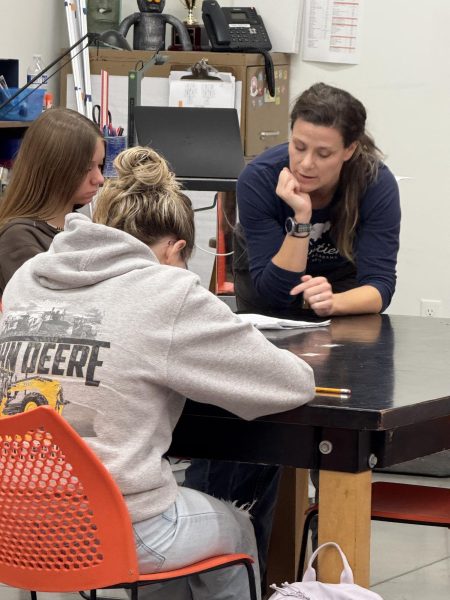Juniors Take on State Testing
As the school year comes to a close, Yamhill Carlton juniors become swarmed with state testing. In recent years, we have made a switch from Oregon Assessment of Knowledge and Skills (OAKS) to Smarter Balanced Assessment Consortium (SBAC). There is state testing in three different subjects math, English, and science.
Morgan Dehaven, one of the many students dealing with state testing, says that the whole process stresses her out. Mainly because she has been pulled out of her important classes to take the tests and it’s hard to catch up.
English and math state testing are SBAC, while science is still OAKS. The two kinds of tests differ. Jordan Slavish, one of YC’s math teachers, says that OAKS was only multiple choice questions so students just simply clicked away with their answers. It didn’t accurately portray how well the teachers taught. With SBAC, there are sections in which the students must write out their thinking and multiple choice tests can have more than one answer.
Slavish admits that there are some difficulties that come with state testing. “[One of the difficulties is] taking a week off! It’s also very challenging having a test that is all juniors, because as you know many juniors are at all different levels of math, and some of them simply haven’t seen the material on the tests yet. It’s tough watching a student get frustrated when they don’t know material they haven’t been taught yet, and knowing it’s not their fault.” The fact that not all juniors have been exposed to all the material is a slight problem because it provides an unfair disadvantage to some students.
Matt Opitz, junior English teacher, isn’t exactly sure what the test contains since he personally hasn’t taken it. He thinks that we should get rid of it all together because he feels as if the test is quite random and doesn’t accurately measure knowledge.
The difference between math and English state testing as opposed to Science state testing is that Science is the only subject that is still OAKS. Brittany Hartmann, YC’s chemistry teacher, provided insight as to why the science testing hasn’t switched to SBAC yet. “I think it’s because science is such a large subject and it may be difficult to format it into SBAC testing.” Hartmann thinks that a switch to SBAC will happen to science state testing.
She also thinks that the way state testing is right now doesn’t accurately show how well students learned material. “I think state testing is a measurement of how well students can eliminate answers and check boxes rather than learn and critically solve, which is what SBAC is striving to accomplish and fix.” This shows how state testing always has room for improvement
Teresa Brey, Yamhill-Carlton high school’s test administrator, is in charge of making sure everyone gets tested.“Trying to schedule everyone into the five different testing sessions can be a bit challenging. Especially when you factor in that some of our students are not in a Math class. Some of the Juniors are in Senior English. Some students have late arrival and some have early release.” Having to make sure that everyone gets tested is difficult, however it is important in order for people to graduate because state testing counts for a student’s essential skills if they pass. If they don’t passed state testing, students can do work samples but Brey thinks that state testing is the easiest and most doable way to get it done.

Currently, I'm a senior at Yamhill Carlton High school. This is my third year as editor-in-chief. In my free time I enjoy reading and writing. Hiking...




